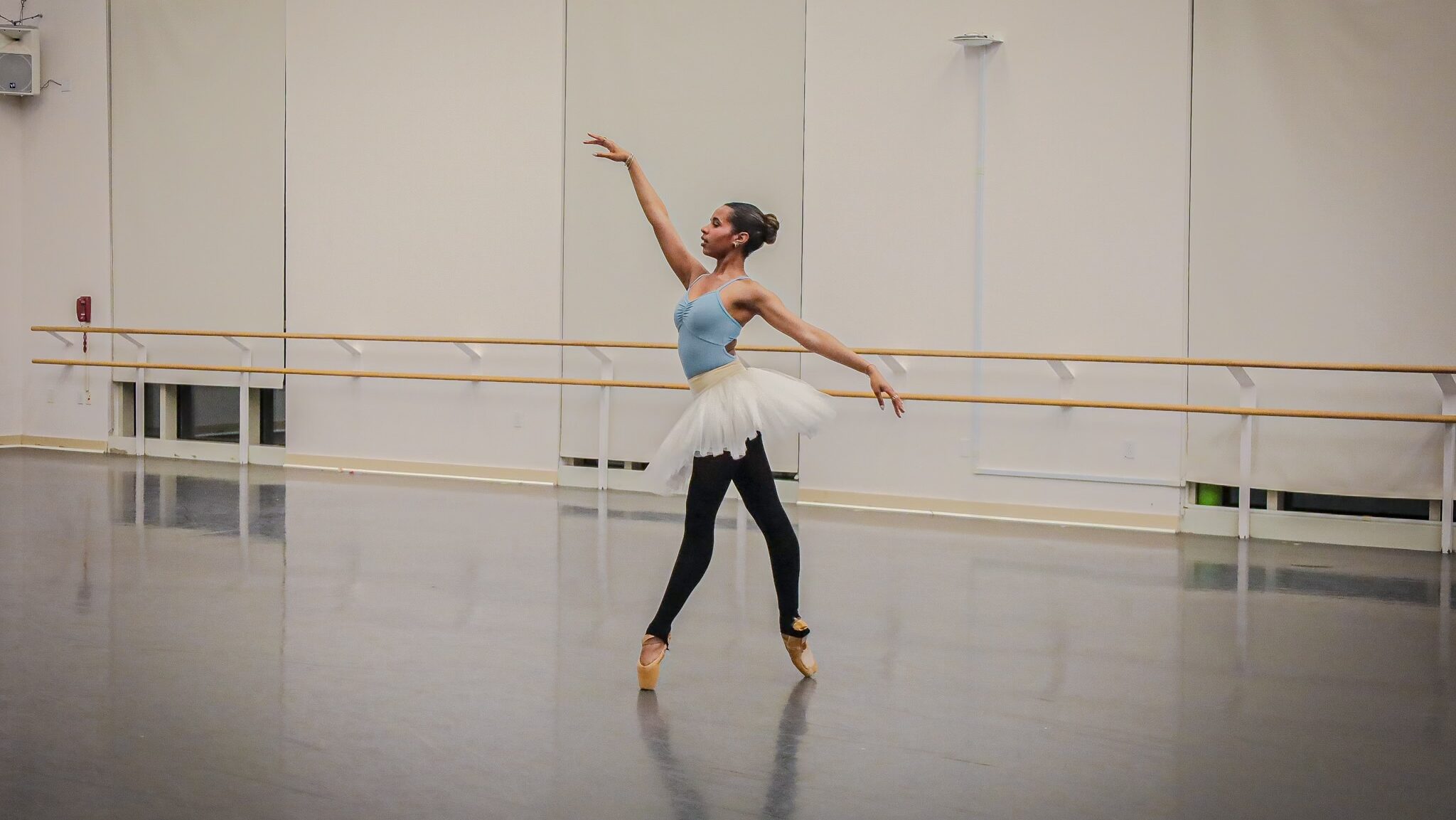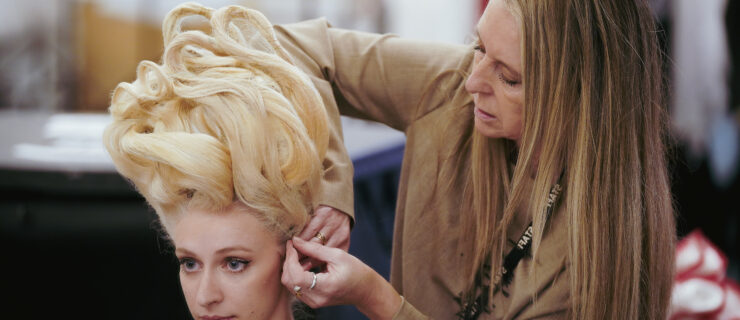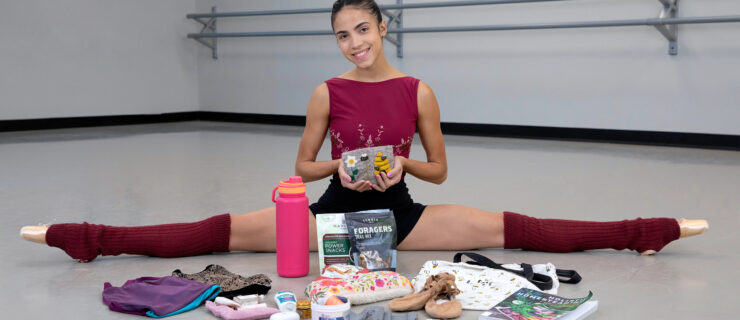Handling the Challenges of College as a Pre-Pro Ballet Student
When Joelle Kimbrough, a junior ballet performance major at the University of Oklahoma, moved into a campus dorm, she discovered her neighbors liked to stay up late—and be loud. “It felt like a party vibe, which is expected when you have a whole bunch of 18-year-olds who are not at home,” Kimbrough says. “But I had to wake up early, and there would always be music blasting, and the walls were really thin. I just quickly figured out that it was not the place for me.”
Like Kimbrough, most collegiate ballet dancers have to find a way to navigate the higher education environment while also focusing on their future careers. What can they do when normal college culture clashes with ballet? Pointe spoke with four dance majors to see how they find balance.
Sick of losing sleep, Kimbrough decided she needed a change. Through researching her options, she discovered her college had a dorm specifically for athletes. Though dance majors weren’t considered college athletes, Kimbrough was able to switch to the athlete dorm, and the quieter, more focused environment better suited her needs.
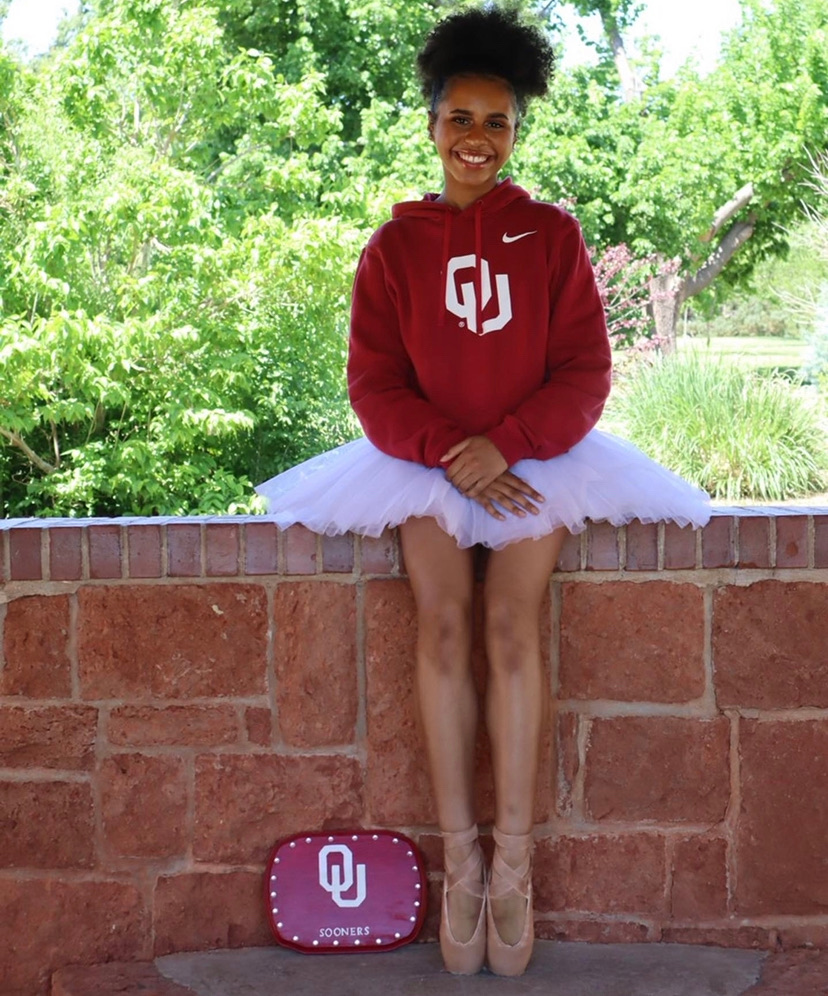
Avoiding “Ballet Tunnel Vision”
Many ballet programs are fairly small, which can be a blessing or a source of stress.
Chris Landreneau, a senior ballet major at Texas Christian University, was used to being the only male student at his home studio in Louisiana. At TCU, as well, he discovered he was the only man studying ballet in his year.
“Even as the only guy, I’m lucky that we’re such a close-knit group,” Landreneau says. “But you still have to find balance between dance and your personal life.” Landreneau made many of his friends at TCU’s freshman orientation camp, and through a Christian group on campus.

It can be almost reassuring to remember that while ballet might feel like your whole world, it’s only one of the many subjects being studied on your college campus.
Stanley Cannon, a junior at Indiana University, Bloomington, lived with a student who wasn’t studying dance his freshman year. He says that having a friend who could provide an outsider’s perspective on “ballet life” helped to keep him grounded. “It’s very easy to get wrapped up in the work that we’re doing because everyone is so passionate about ballet and about improving,” he says. “It’s easy to get tunnel vision. Having that year with someone who had a whole different set of worries and anxieties about college was very refreshing.”
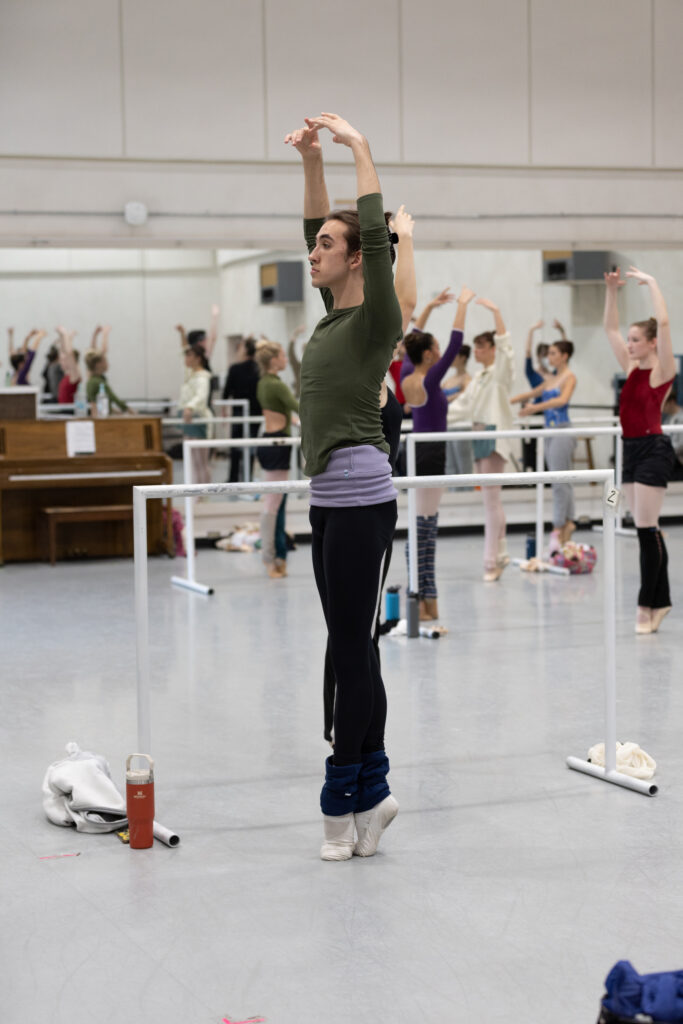
“Most people don’t even know there is a school of dance on campus,” says Landreneau. “It’s like a foreign concept. A question we get a lot is “What are you going to do after you graduate?” And we’re like, “Yeah, we’re going to dance, and get paid to do it.”’
Parties and FOMO
Parties are undoubtedly a part of the college experience, but drinking alcohol and staying out late can cramp your technique in class the next morning. Still, the feeling of FOMO—fear of missing out—can make turning down plans difficult.
Students studying other subjects sometimes have more flexibility in their schedules than dancers, who might be required to take an 8 am ballet class or attend a rehearsal until late in the evening.
“Most dancers, we’re used to saying “Oh, I can’t, I have dance,’ ” says Cassidy Doan, a dance major from the University of California, Irvine. “In college, it’s “Oh, you want to go to that party next weekend? I’m sorry, I can’t make it. I have dance class and rehearsal. Maybe afterwards.’ ”
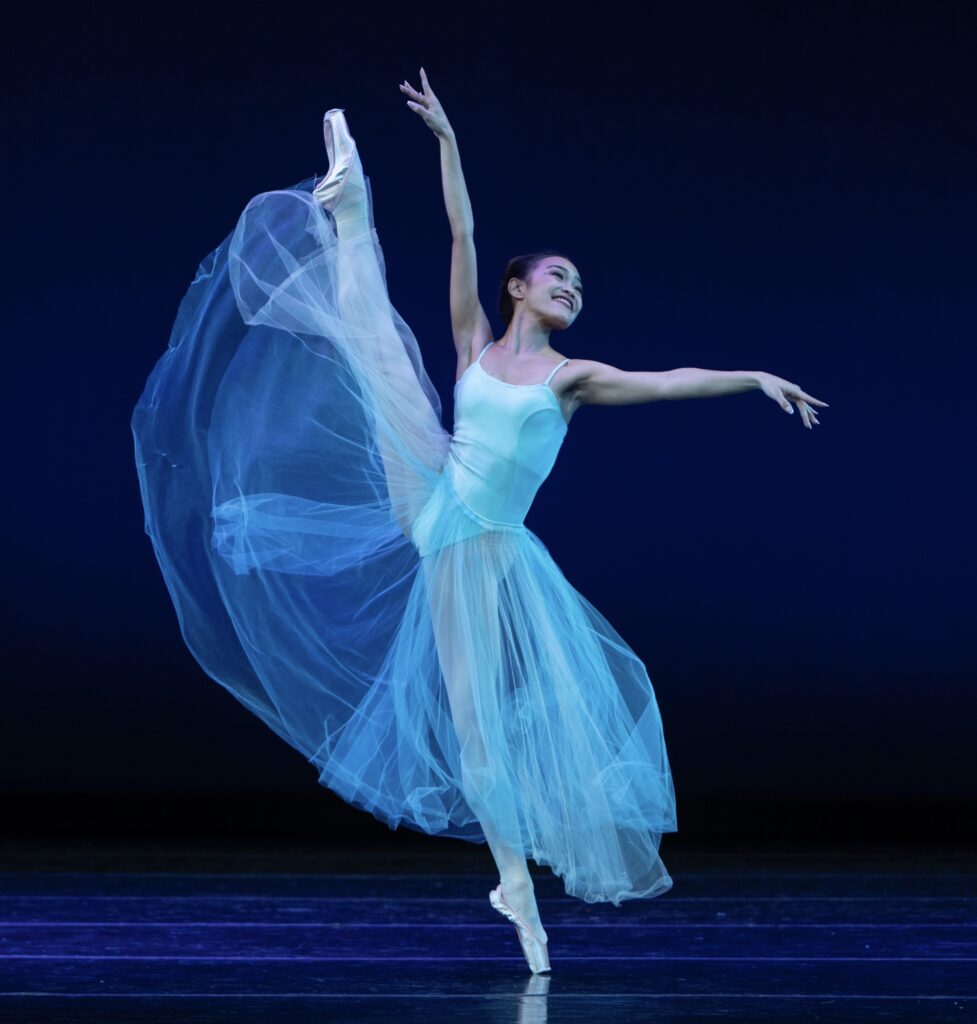
Kimbrough agrees. “My friends outside of dance don’t always understand, but sometimes I have to say, “Hey, I can’t come to the party, but I still love you,’ ” she says. “One thing I have to remind myself when I get FOMO, it’s that it’s the same songs and the same group of people at these parties.” She still makes an effort to socialize, sometimes splitting her time between friend groups, like tailgating with her sorority sisters before attending a football game with her dance classmates.
Double Major, Double Commitment
Many college dancers add a second major, because they have an interest in another academic subject or to help them transition careers once they retire from performing. But twice the degrees really does mean twice the work.
Doan and Kimbrough both double-major in a science, with the aspiration to one day go to medical school.
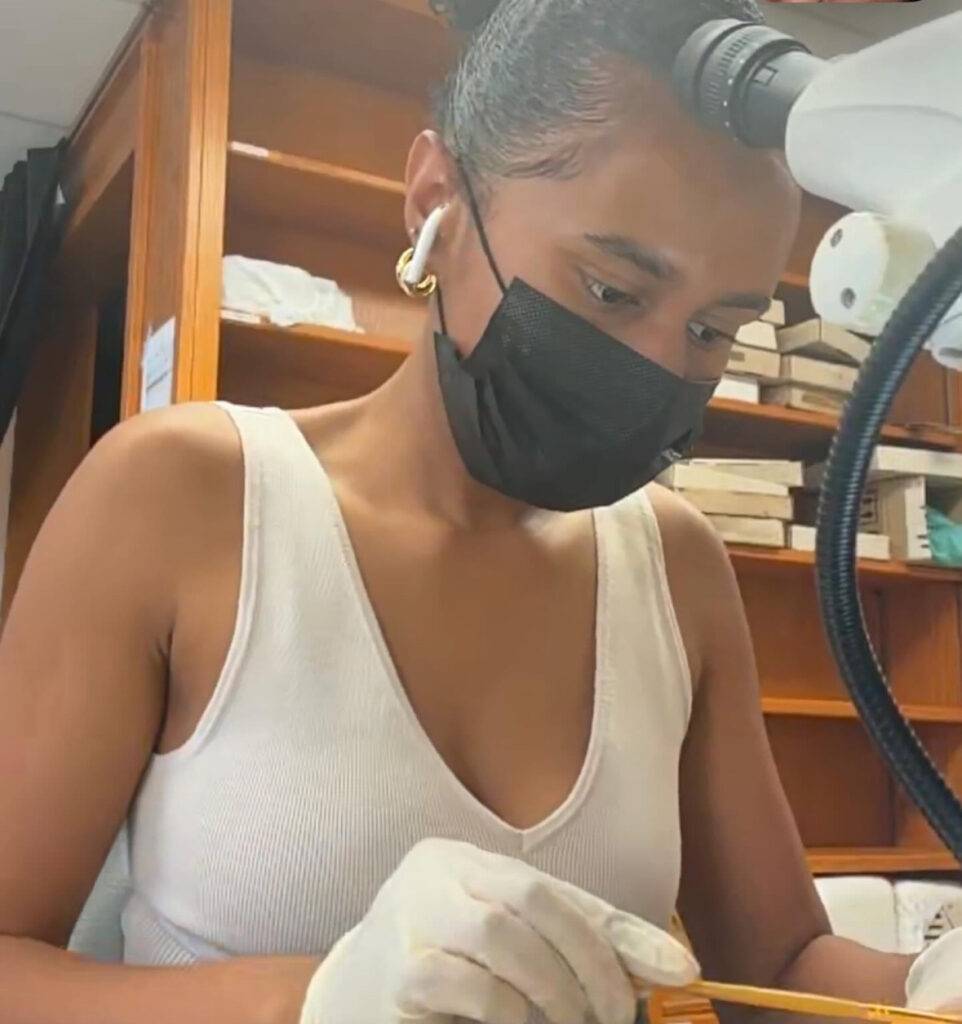
They take advantage of waivers that grant them permission to enroll in more credits per semester than typically allowed. They also take extra courses over school breaks, which are often accelerated and condensed. “I took chemistry in four weeks over the summer,” Kimbrough says. “It’s normally 16 weeks.” If you hope to double-major, talk to your academic advisor about how to best map out your schedule, and understand that it might take more than the standard four years to graduate.
You will also have to fit studying in between classes and rehearsals. Doan describes rehearsing Balanchine’s Serenade while simultaneously studying for the MCAT. “I was in the corner doing flash cards before I had to go back on in rehearsals,” Doan says. “I had a principal role and I was like, my body’s dying, but also my brain is dying, and I just couldn’t wait to go to sleep every night.”
Schedule conflicts are bound to emerge. Kimbrough gets in front of the problem by communicating in advance with her professors in both majors. “Last semester, I had a chemistry lab that conflicted with rehearsal, but I couldn’t change the time of the lab,” she says. Because she gave plenty of notice, her professor was able to shift the rehearsal schedule to accommodate her. “Honestly, everything is about communication.”
And if others say your double major makes you less dedicated to one or the other, don’t believe them. “[Sometimes] I felt I couldn’t fully identify in either the sciences or the arts,” says Doan. “If I was with my dance friends, I was the pre-med student. In the bio department, I’d say I’m a dancer and feel the need to academically validate myself. At my most recent research symposium, I made everyone stand up and dance our choreographed movement sequences, to be like, “See? It’s not that easy!”’

Experiencing Extracurriculars
College is a unique opportunity to explore new interests and find community with those who share them, but juggling extracurricular activities around school and rehearsal can be challenging.
Despite becoming heavily involved in his school’s dance department, Cannon finds ways to socialize in other areas. He works as a paid usher for the student opera and serves on the student council representing his class of ballet majors. But he also found friends in Indiana University’s fair-trade club who share his passion for conscious consumerism. “[IU] is a Big 10 school, and just under 50,000 people go here, so there are clubs and organizations for absolutely everything,” Cannon says. “It’s something I don’t want to take for granted, because it’s a very special part of being in college.”
Kimbrough seeks out leadership opportunities in her extracurriculars, in part to have more influence over their schedules. “As crazy as it sounds, I try to balance everything by being able to oversee everything, so I can coordinate them around my schedule,” she says.
She’s currently vice president of her sorority, volunteers as a mentor and intern for Brown Girls Do Ballet, and has a leadership role on her campus’ National Pan-Hellenic Council, the governing board for all historically African American sororities and fraternities.
Whether you wish to focus more on dance, your social life, or both, the key is finding the right balance for you. Ask yourself, “What matters most to me? And what am I willing to do to make that happen?” Try, ask for help, and adjust as needed.
